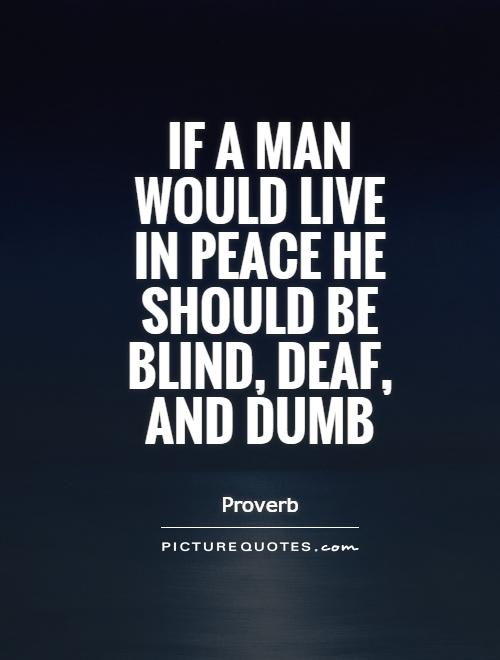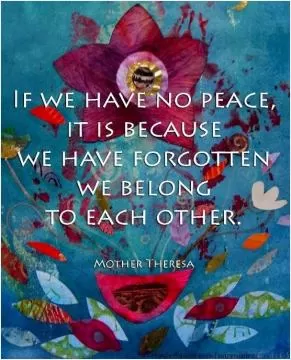If a man would live in peace he should be blind, deaf, and dumb

If a man would live in peace he should be blind, deaf, and dumb
The proverb "If a man would live in peace he should be blind, deaf, and dumb" is a powerful statement that highlights the challenges and conflicts that can arise from communication and perception. In essence, the proverb suggests that in order to avoid conflict and live in peace, one must turn a blind eye, a deaf ear, and remain silent in the face of adversity.The idea behind this proverb is that much of the conflict and discord in the world stems from misunderstandings, miscommunications, and differing perspectives. By being blind, deaf, and dumb, one is essentially removing themselves from the potential triggers of conflict. They are choosing to ignore the things that may cause them distress or lead to arguments, and instead opting for a more peaceful existence.
However, while this proverb may seem to offer a simple solution to living in peace, it also raises important questions about the nature of communication and understanding. Is it truly possible to live in peace by shutting oneself off from the world? Is it ethical to turn a blind eye to injustice or remain silent in the face of wrongdoing?
In reality, true peace cannot be achieved by ignoring the world around us. It requires active engagement, empathy, and a willingness to listen and communicate with others. While it may be tempting to avoid conflict by being blind, deaf, and dumb, this approach ultimately leads to ignorance and apathy.
Instead, true peace can only be achieved through open dialogue, mutual respect, and a commitment to understanding and empathy. By actively engaging with others, listening to different perspectives, and speaking up against injustice, we can work towards a more peaceful and harmonious world.












 Friendship Quotes
Friendship Quotes Love Quotes
Love Quotes Life Quotes
Life Quotes Funny Quotes
Funny Quotes Motivational Quotes
Motivational Quotes Inspirational Quotes
Inspirational Quotes